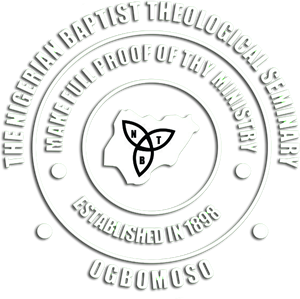Master Of Art and Doctor Of Philosophy in
CHRISTIAN LEADERSHIP
MASTER OF ARTS IN CHRISTIAN LEADERSHIP
Purpose
The online Master of Arts in Christian Leadership provides graduate-level biblical and theological education to prepare students for organizational leadership roles in various ministry settings. The training prepares students to assume leadership positions in the church, para-church, missions, and marketplace contexts.
Objectives
Upon completion of the study, students should have been able to:
i. Develop a biblical philosophy of Christian leadership;
ii. Appraise the leadership needs of an organization;
iii. Design a leadership development plan for an organization;
iv. Demonstrate developmental leadership skills within an organization;
v. Demonstrate analytical skills in conducting research in the field of Christian leadership.
DOCTOR OF PHILOSOPHY IN CHRISTIAN LEADERSHIP
Purpose
The online PhD in Christian Leadership is an interdisciplinary programme offering students modules that are capable of developing a comprehensive theoretical framework of vital importance in instructing professionals in all areas of leadership fields.
Objectives
Upon the completion of this programme, students should be able to:
i. Demonstrate academic competencies through original and independent research and contributions to scholarship;
ii. Attain a deeper understanding of Bible-based, Christ-centered, and theologically focused administration and leadership;
iii. Demonstrate skills for training and equipping God-called men and women into leadership and administrative positions;
iv. Acquire advanced approaches to administration, leadership, management, and development of organizations through a pragmatic approach to identification and selection of principles and approaches applicable to administrative and leadership obligations and interpersonal relationships;
v. Exhibit quality skills for global administrative and leadership concepts, theories, principles, and techniques for adaptation, adoption, and necessary contextualization in administering and leading schools, churches, and other socio-religious institutions;
vi. Contribute theologically and intellectually to attaining institutional goals, aspirations, and development, particularly in holistic soundness and moral standard.
